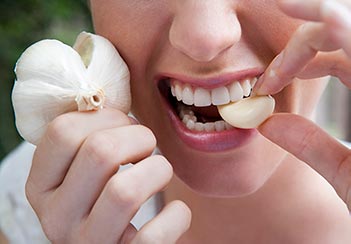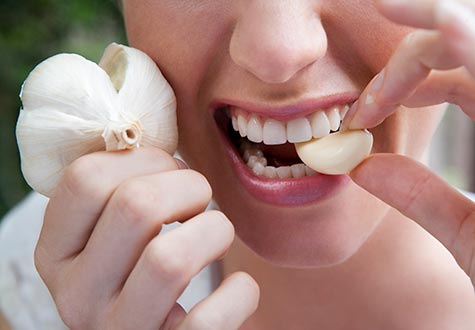
Kristin Wenger, education coordinator for the Blue Ridge Poison Center, contributed this coronavirus prevention post. She used information from the World Health Organization, Centers for Disease Control and Prevention and the National Poison Data System.
There is a lot of confusing, incomplete, and just plain inaccurate coronavirus prevention information out there. Some measures are harmless but won’t help prevent or cure an infection. Others could be downright dangerous.
According to the U.S. Centers for Disease Control and Prevention (CDC) and the World Health Organization (WHO), there’s currently no vaccine or other measure that can make a person immune to coronavirus (COVID-19). There is also no medicine that will cure an infection. Research to develop vaccines or cures is ongoing. In the meantime, don’t believe everything you read on the internet.
Myths vs. Facts: Coronavirus Prevention
Let’s take a look at some of the rumors.
Myth: Sipping water every 15 minutes sends coronavirus to your stomach to die.
Fact: It’s important to stay hydrated. But this rumor claims that sipping water will move any viruses in your mouth down into your stomach, where they will die. In fact, this will not prevent any viruses from infecting cells in your body.
Myth: Swallowing cleaning products kills coronavirus.
Fact: The CDC recommends using approved cleaning products, including diluted bleach solutions, to clean frequently-touched surfaces. This will help kill any viruses lurking there.
However, it’s a false and dangerous rumor that drinking bleach or other cleaning product will kill the virus inside your body. There’s no product you can swallow to prevent a virus from attacking your cells once it is in your body. Swallowing cleaning products could result in serious illness or injury.
According to the Blue Ridge Poison Center, exposure to cleaning products is the second leading cause of calls to poison centers nationwide.
Myth: Spraying cleaning products on your face, body, or clothing destroys the virus.
Fact: Not likely. It could also be dangerous. Cleaning products may contain chemicals which cause burns or irritation to the skin, eyes, or breathing passages.
Myth: Drinking vinegar or other acid prevents COVID-19 from attacking your cells.
Fact: There’s nothing you could swallow that does this, including acidic products like vinegar. Drinking large amounts of something acidic may cause an upset stomach or even burns to the mouth, throat, and esophagus.
Concerned About Symptoms?
Having symptoms? Call your primary care provider. If you don’t have one, find one near you.
If your symptoms are severe, call this number before coming to the emergency department: 434.98.COVID (982-6843).
Myth: Taking large doses of vitamin C helps with coronavirus prevention.
Fact: For adults, the recommended daily amount for vitamin C is 65-90 milligrams a day, and the upper limit is 2,000 mg a day. Although too much vitamin C in your diet is unlikely to be harmful, megadoses of vitamin C supplements might cause uncomfortable digestive symptoms. And they won’t prevent or cure a COVID-19 infection.
Myth: Exposing your body to extreme heat kills the virus.
Fact: There are rumors that practices such as sitting under a heat lamp, sitting in a hot bath, or using a hot hair dryer all over your body will kill the COVID-19 virus. In fact, this will have no effect on any viruses in or on your body and could result in skin irritation.
Myth: Coating your body with hand sanitizer kills coronavirus.
Fact: Health officials recommend hand sanitizer with an alcohol content of at least 60% to kill COVID-19 on the hands, especially when soap and water are unavailable. There have been reports of people coating their bodies, or the bodies of their children, with hand sanitizer. Alcohol can be absorbed through the skin. The tiny amount you rub on your hands is safe, but using it on the entire body could cause problems, especially in small children.
Plus, a quick side note about hand sanitizer: Always supervise young children when using these products and store them up high, out of sight and reach. Children commonly lick their hand after an adult applies hand sanitizer. This amount shouldn’t cause serious injury. However, if a child drinks from a bottle of hand sanitizer, they could become intoxicated.
Myth: You can mix cleaning products together to make DIY hand sanitizer.
Fact: With stores running low on hand sanitizer, people are turning to homemade versions. The CDC advises that using plain old soap and water, along with proper handwashing techniques, is the best way to cleanse your hands. Mixing certain chemicals together could create poisonous gases that cause:
- Coughing
- Burning
- Watery eyes
- Shortness of breath
- Chest pain
In particular, do not mix bleach, ammonia or vinegar together in any combination.
Myth: Rinsing nasal passages or gargling with saline or salt water prevents coronavirus.
Fact: Rinsing the nasal passages and gargling with saline or salt water may provide some relief of sore throat or other symptoms. But it will not kill the virus or prevent it from attacking your body. Take care not to accidentally swallow the salt water, as too much salt at one time could lead to illness.
Myth: Taking antibiotics will cure coronavirus.
Fact: COVID-19 is a virus. Antibiotics only kill bacteria, which are entirely different organisms. Not only will taking antibiotics have no effect on the coronavirus, but it might kill some healthy gut bacteria leading to unwanted digestive problems.
Myth: Swimming in the ocean or a pool kills the virus.
Fact: Salty ocean water doesn’t kill the COVID-19 virus. Chlorine may have some ability to kill viruses, but the chlorine in a pool is very diluted. It’s difficult to say whether pool water would kill any coronaviruses on your skin. And it would have no effect on any viruses that are already inside your body.
Also, pools and beaches are crowded, wet environments which are great for spreading infections of all kinds. It’s best to avoid public beaches and pools right now.
Myth: Eating garlic helps with coronavirus prevention.
Fact: There is no evidence that garlic will prevent infection or destroy the COVID-19 virus.
UVA Health’s Response
See how UVA is addressing coronavirus.
Myth: Essential oils and sesame oil destroy coronavirus.
Fact: There is no evidence that these oils will prevent infection or destroy the COVID-19 virus. Rubbing essential oils all over the body could cause skin irritation. Some essential oils are toxic if swallowed, even in small amounts. For this reason, always keep essential oils out of the sight and reach of young children.
Myth: Using colloidal silver prevents infection.
Fact: There is no evidence that colloidal silver supplements or throat spray will prevent infection or destroy the COVID-19 virus.
Fact: Handwashing helps prevent coronavirus.
This one is true! You can reduce your chances of getting sick with COVID-19 and many other illnesses by:
- Washing your hands often with soap and water for at least 20 seconds.
- Staying home if you’re sick
- Avoiding touching your face
On March 16, the White House issued additional guidelines, asking people to practice social distancing and avoid gatherings of more than 10. Get the latest guidelines from the CDC.
